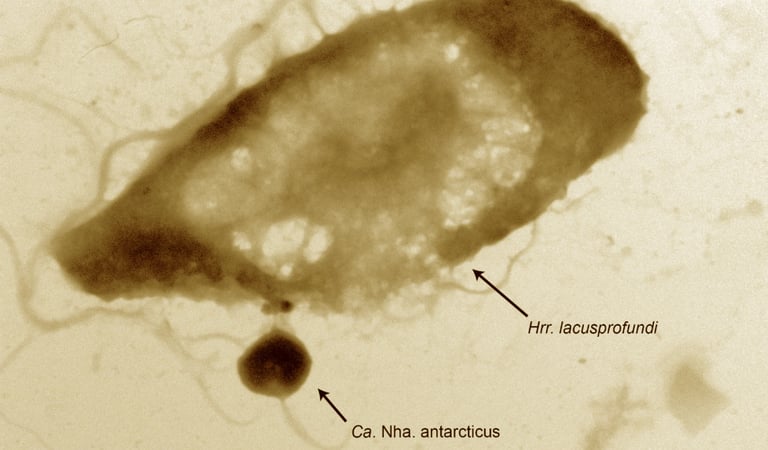Antarctic Archaea Exhibit Phage-Like Behavior Towards Their Hosts
MICROBIOLOGY
8/6/2024
Deep Lake, a small but remarkable lake in Antarctica, boasts a high salinity level that prevents it from freezing even when temperatures plummet to -20°C in winter. Despite its harsh conditions, this unique environment is home to a diverse array of microorganisms, including a group of archaea known as DPANN. A July 2024 study published in Nature Communications by researchers from the University of Technology Sydney revealed that some DPANN archaea exhibit predatory behaviour capable of killing their host cells. These archaea, Candidatus Nanohaloarchaeum antarcticus, part of a superphylum that relies on direct contact with their host to survive, were observed in the study to cause cell lysis in their host, Halorubrum lacusprofundi, similar to phage infection. This discovery provides compelling evidence that DPANN archaea may play a distinct ecological role, potentially serving as natural population controllers in their extreme habitat.


